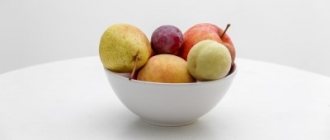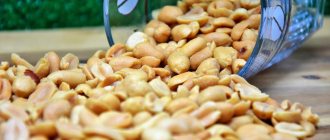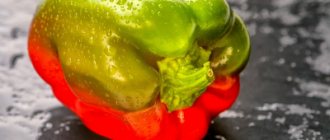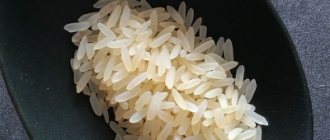Modern owners are concerned about the question: what fruits can dogs eat? Before industrial food entered the market, dogs and cats received natural food in the form of meat, poultry and fish supplemented with cereals, vegetables, fruits, berries, herbs and wild herbs. They grew well, took places at exhibitions, worked and gave birth to offspring.
With the massive transfer of dogs to industrial food, owners begin to wonder whether introducing additional products into the pet’s diet will harm them. Veterinarians say that mixing ready-made food and natural products is not permissible. In principle, this is correct, since the animal’s digestive system is adjusted to assimilate one type of food, which means that the second type remains undigested and can cause disorders. At the same time, one cannot assume that dry and wet industrial food completely satisfies the dog’s needs for vitamins, microelements, and fiber.
Can dogs eat fruit?
As you know, the ancestors of dogs are wolves. However, not everyone knows that these predators are often not averse to eating the fruits of fruit trees, berries and roots that have fallen to the ground. This is how wolves quench their thirst and receive useful substances. Our pets can receive all these vitamins and minerals from specially developed vitamin foods, however, fruits, vegetables and berries cannot be replaced by any nutritional supplements.
The fruits of fruit plants serve well as an incentive treat and help fight seasonal vitamin deficiencies. In addition, experienced breeders recommend certain fruits in cases of constipation in an animal. However, it is important to understand that not every fruit is good for dogs.
Many fruits and berries can cause allergies, digestive and intestinal disorders, gases, and sometimes even the death of the animal. If they tell you that a dog can eat anything, don’t believe it, such owners are simply careless and inattentive to those they have tamed.
Many inexperienced breeders go from one extreme to another. Some people don’t give fruit to their dogs at all, while others (vegan owners) believe that what’s good for them will be good for their dog.
Some people mistakenly believe that animals are able to identify the fruit their body needs by smell. Unfortunately, it is not. In this case, it is not the dog’s natural need for some useful component of the fruit that is at work, but the dog’s social essence - I want what my loved one eats. Let's figure out what you can do to please your dog.
Features of feeding plant foods
In order not to harm the pet, this type of product should be administered in small portions. If it is not suitable, then the dog will soon show allergies or other adverse symptoms.
Every time you give new fruits or berries, it is necessary to monitor the dog’s condition. It is unknown how her body will react to an unusual product. Consequences that require immediate medical attention:
- allergies: discharge from the eyes and nose;
- redness of the mucous membrane, tips of the paws;
- hair loss;
- breathing problems;
- rash in the form of flat blisters, pimples;
- swelling of the neck, muzzle;
- peeling of the skin;
- increased gas formation;
It is better to feed dogs vegetables and fruits that are in season, thus avoiding poisoning from chemicals that are used to process plant foods and accelerate ripening. Also, you should not treat them to overripe or rotten plant products.
You should not give dogs fermented milk food and fruit on the same day, as this can cause gastrointestinal diseases. And if your pet has chronic problems in this area, you should consult a veterinarian before feeding him plant foods.
Acceptable fruits
The healthiest fruit is apples . They are less likely than others to cause allergies, contain a lot of vitamins A and C, and a large amount of fiber, which improves digestion in dogs. Breeders recommend grinding apples with carrots ; this not only improves the taste, but also adds carotene, a substance good for eyesight and coat. For dogs with red hair, it is especially important to get carotene from their diet, as this affects the shade and shine of the coat.
Many dogs love to eat bananas . The high amount of potassium makes this fruit especially useful, as this element regulates metabolism, bone development and the nervous system. However, bananas contain a lot of sugar, so it is not recommended to treat your pet more than once a week. Overripe fruits cause stool disorders in dogs.
Pear is an excellent, healthy fruit that is loved by our four-legged friends. It contains a lot of fiber, complete with copper, vitamins C and K. Veterinarians advise giving dogs a quarter of a pear per week in order to reduce the risk of cardiovascular disease.
Melons and watermelons are excellent thirst quenchers, gently stimulating the dog's intestinal motility, however, due to the large amount of liquid, the dog, like any other creature, will soon want to get rid of it. It is not recommended to give peels - all the chemicals that are used to treat plants accumulate in them.
a small amount of papaya ; according to the breeders, it stops any diarrhea.
Many pets love berries . For example, rowan contains a lot of vitamin C, gooseberries have a lot of fiber, and blueberries are good for dogs' eyesight and strengthens blood vessels, preventing strokes.
However, not all fruits and berries are as healthy as we would like.
Vegetables for Dog Health
The body of four-legged animals does not produce an enzyme that breaks down the fiber contained in this food. Therefore, they should not be on the animal’s menu every day, and it is advisable to offer them to pets as an addition to the main meal.
Puppies of large breeds should grind vegetables into purees, and adult dogs should be fed small pieces.
In addition to the benefits to the body, the very fact of chewing solid food prevents the formation of plaque on the dog’s teeth. Consequently, the unpleasant odor from her mouth practically disappears.
Representatives of small breeds can grate plant foods on a coarse grater or cut them into small pieces.
There are many lists of permitted and prohibited vegetables. But you shouldn’t follow them thoughtlessly, because it happens that a dog does not have negative reactions to products from the prohibited list. It is important to remember: feeding an animal with permitted vegetables can also provoke the occurrence of diseases. If you maintain a balance, the pet will delight its owners with good health.
Healthy vegetables
There are herbal products that you can give to your pets without worrying about the consequences.
- Raw zucchini. Contains folic acid, potassium and calcium. To improve intestinal function in older dogs, you need to regularly feed them zucchini.
Expert opinion
Anna Abramenko
An avid dog lover. Experience in veterinary medicine since 2009.
Ask a Question
One of the components of this vegetable is beta-carotene. It is easier for the dog’s body to assimilate it if the zucchini has previously been subjected to heat treatment.
- Carrots are rich in phosphorus, magnesium, potassium, copper, zinc, iron, iodine and vitamins A, B, PP, C, E. Its consumption by dogs on an ongoing basis prevents the formation of malignant tumors, improves vision and coat condition. But carrots are prohibited for animals suffering from diabetes. Sometimes it can cause allergies due to the carotene it contains. You can give this vegetable to dogs in any form.
- Cucumber is beneficial for obese animals. Contains vitamins C, K and B1, copper, magnesium, biotin and potassium. Fresh cucumber promotes normal intestinal function and consists mostly of water, so dogs need to be fed cucumbers, observing the dosage; in large quantities it can cause diarrhea.
- Celery - consists of amino acids, phosphorus, calcium, sodium and vitamins A, B and C. But only the stems are beneficial for dogs and in small quantities. Celery helps reduce the risk of developing cancer, improves blood flow and heart function. You need to feed your dog small pieces, as celery stalks are hard.
- Sweet Potatoes – Contains vitamins B6 and C, beta-carotene and minerals. Before feeding your dog, it is important to heat treat it.
Expert opinion
Anna Abramenko
An avid dog lover. Experience in veterinary medicine since 2009.
Ask a Question
Sweet potatoes should be given to your dog in limited quantities, otherwise you can cause him to become overweight.
- Pumpkin is rich in vitamin A and is better absorbed by the body with fat, so you should feed it to dogs not in its raw form. It is a harmless vegetable along with zucchini. Helps reduce stomach acidity and constipation problems. Sometimes dogs refuse to eat chopped pumpkin due to its texture; it is better to grate it.
- Pepper – it is advisable to feed only Bulgarian pepper in small portions, first remove the seeds and finely grate it. Because sometimes dogs refuse to eat pepper because of its unusual taste. Can be consumed in any form, both raw and baked.
Among all types of bell peppers, it is better to give preference to red ones; they are healthier than green and yellow ones.
- Cabbage:
- Beijing;
- Brussels sprouts;
- sea
All 3 types have a good effect on the dog’s body, as they contain many useful substances, and seaweed contains iodine.
- Tomatoes. To avoid causing allergies or digestive problems, you should feed your dog only red tomatoes. At other times of the year, they are often saturated with various stimulants, which negatively affects her health.
Forbidden vegetables
- Onions and garlic - when consumed in large quantities, they can cause anemia and have an irritating effect on the digestive organs.
- Legumes cause bloating and active gas formation, which is deadly for some dog breeds.
- Radishes have a negative effect on the thyroid gland. It is especially prohibited for pets with diseases of the gastrointestinal tract and liver.
- Preservation - due to the large number of different spices and the method of preparation, such products cannot be given to animals.
Allowed vegetables, but with restrictions
- Beetroot – contains vitamins A, B, C, iron, magnesium, calcium, potassium. Stimulates the regeneration of liver cells, supports heart function. But it is worth considering that in large quantities, beets provoke diarrhea, bloating and allergies, as well as a change in the coat color of pets with light fur coats. But it is useful for red and brown dogs, as it makes the color bright. Boiled beets are easier to digest by the body and are almost as healthy as raw ones.
Because of its color, it can stain urine and feces.
- Potatoes – allowed 2 times a month in very small quantities. In its raw form, it is dangerous due to solanine, which negatively affects the dog’s nervous system.
- Cauliflower, cabbage and broccoli. When consumed in large quantities and raw, these vegetables provoke diarrhea and increased gas formation. Cabbage may cause heartburn, and broccoli contains isocyanate, a toxic substance to animals that can kill your pet. Four-legged animals can eat cabbage only in boiled, steamed form.
- Eggplant is contraindicated for dogs with kidney disease and also causes diarrhea. You can feed them to pets only baked and without peel.
- Corn. It is advisable to offer it to your pets boiled and as a treat.
Expert opinion
Anna Abramenko
An avid dog lover. Experience in veterinary medicine since 2009.
Ask a Question
You should not give cobs to your pets; they are not digestible and can clog the intestines until they rupture.
Fruits that should not be given
- a lot of papaya will increase blood sugar;
- all citrus fruits are allergens and irritate mucous membranes;
- persimmon causes intestinal obstruction;
- cherry fruits contain cyanide in the pits, which is acutely felt by the dog;
- apricot and peach are natural dog laxatives;
- strawberries in 90% of cases lead to severe allergies in animals;
- raspberries , blackberries - allergens;
- grapes and raisins are harmful to the kidneys and cause nausea and vomiting in small dogs;
- pomegranates irritate the stomach, bones are toxic;
- Avocado is especially harmful for dogs, as it contains persin, a substance that causes pulmonary edema, problems with the heart, and even death;
- quince - causes vomiting;
- Pineapples contain bromelain, an enzyme that destroys the lining of the oral mucosa and stomach, and also causes severe diarrhea in dogs.
What fruits should you limit?
Here is a list of fruits that a dog can eat, but in limited quantities and not often.
Papaya . A slice of peeled fruit will stop mild diarrhea. If consumed frequently, it causes constipation and increases blood sugar.
Kiwi . A circle of kiwi will give your pet a portion of vitamin C and valuable fruit acids. No more than one circle is allowed every 2-3 weeks for a medium-sized dog.
Persimmon of soft “chocolate” varieties without peel and seeds stimulates the intestines well and helps normalize stool. Dogs should be fed it if they have problems with stool.
Cherry and sweet cherry . They are given pitted as a treat if the dog likes them. But they are of no use.
Apricots . They are given without seeds and, preferably, without skin. In large quantities they are very weak, especially for puppies and young dogs.
Strawberry . Probable allergen. But many dogs like to eat it, so you can offer them a couple of berries a day during the season.
Raspberries . It is an even stronger allergen, so it is given to dogs in very limited quantities.
Blackberry . A very controversial fruit. Veterinarians do not note any benefits from it, it is poorly absorbed, and allergic reactions to it occur. Giving it to a dog is allowed on a limited basis and only when the dog himself asks for the berry.
Tips for feeding your dog fruit
Before adding fruits or berries to your dog's diet, make sure they are fresh and ripe.
You should not use your animal as a waste bin; the dog’s body will respond in kind by using your carpet instead of a toilet.
Fruits can be given to puppies, however, this should be done carefully, first give a small slice, wait, and if there is no reaction within a couple of days, you can gradually increase the amount of treat.
Veterinarians warn that you should not combine fruits and dairy products on the same day, as this is harmful to digestion.
Jam is not the same as fruit! It contains too much sugar.
On average, for a dog weighing more than twenty kilograms, it is enough to give half an apple a day, the same applies to all other fruits - no more than one hundred grams. A smaller dog should eat a smaller dose. As for berries, their number should not exceed 3-4 pieces.
Why should animals eat vegetables and fruits?
Vegetative food is rich in fiber and promotes easy digestion and absorption of animal products. It should be present in the dog’s diet, especially when cholesterol begins to accumulate and clog blood vessels, or when a lack of microelements occurs. It is important to give products of plant origin to puppies, not only as a prebiotic, but also to maintain the balance of vitamins, carbohydrates, and pectins in their body. The amount your dog consumes of these foods should be reasonable.
Expert opinion
Anna Abramenko
An avid dog lover. Experience in veterinary medicine since 2009.
Ask a Question
It is better to teach your pet to eat various fruits and vegetables from puppyhood, otherwise at an older age the dog may refuse plant foods. Veterinarians advise regularly feeding pets with approved products of this origin.
Do cats eat fruit?
Unlike dogs, cats are not attracted to the sweetness of fruits. The Vetstreet website explains that fruit (in moderation, of course) can be a great treat option.
The following fruits are safe for your furry friends to enjoy as a refreshing snack. It is necessary to cut the fruit into small pieces so that the cat does not choke. Before offering fruit to your pet, follow the same recommendations as for dogs.
- Apples.
- Bananas.
- Blueberry.
- Melon.
- Strawberry.
- Watermelon (seedless).
Is grapefruit bad for dogs?
Veterinarians do not recommend grapefruit for consumption by dogs.
It is not recommended to give your puppy grapefruit in large quantities or on a regular basis. The pulp is rich in citric acid and can irritate the digestive system, causing vomiting and diarrhea. Similar effects will be seen in dogs that drink grapefruit juice.
The peel and seeds are even more dangerous for our pets. This is the toxic part of the fruit that can cause more serious stomach upsets and other problems such as lethargy and skin problems.
In addition to being toxic to the skin, it is also indigestible and should not be consumed for this reason. If your dog accidentally eats a large amount of skin, it can cause a stomach or intestinal blockage, which may require emergency surgery.
The nutritional value
Grapefruit is filled with many nutrients and vitamins that promote healthy skin, teeth, and immunity.
Grapefruit is an excellent source of vitamin C for humans, which helps maintain healthy skin and gums. High levels of vitamin A also promote a healthy immune system, and folic acid plays a critical role in the healthy development of the unborn child. This is a healthy, low-calorie snack that many people love.
While some of these nutrients may also be beneficial for our pets, others are not really required. Humans (including guinea pigs!) require vitamin C from external food sources, while dogs and most other animals can make it themselves.
Is fruit necessary in a dog's diet?
There is a widespread belief that wolves, the direct ancestors of dogs, eat exclusively meat. However, this is not quite true. Of course, the basis of the diet is meat, but in addition, these animals eat wild berries and fruits falling from trees. Also a source of fiber is the plant contents of the stomach of herbivores, which are prey for predators.
Whatever one may say, wolves and their closest relatives need plant food. It is not surprising that pets often literally beg for a slice of apple or begin to happily eat berries straight from the bush. Fruits for four-legged animals are a real treat, rich in natural vitamins and sugars.
But you need to be careful with such food - the digestive system of dogs functions differently than that of humans, and it cannot digest some substances. In addition, a number of components contained in fruits are very harmful to animals, since when they enter the body they become poisonous.
So, can you feed your dog grapefruit?
Your puppy may ask for a bite, but offer a small amount as there are some dangers associated with the fruit.
Technically, the pulp is normal if given in small quantities and is unlikely to cause serious problems. However, you will find that most dogs do not like its pungent taste and aroma.
It would be better to offer some of these fruits as an alternative, sometimes instead of a treat:
- Apples: A nice crunchy snack, best served without the pit or hard core.
- Banana: A filling treat that many dogs enjoy.
- Blueberries: A great snack that requires little preparation before feeding and is rich in antioxidants.
- Melon: All types of melon are safe for dogs and make a good warm weather treat due to their high water content, especially watermelon.
- Mango: An exotic sweet snack, serve without the large pit to avoid blockages in the digestive tract.
- Pears: A safe snack, best served without the skin or core.
- Peaches: A non-toxic fruit, they are safe for your pet as long as you remove the pit.
- Strawberries: A convenient treat that doesn't require much preparation.
Most dogs don't like to eat fruit at all, so never force it. It may be best to stick to your pet's regular diet or try offering other dog-safe snacks, such as strips of cooked lean chicken and vegetables such as carrots and cucumber.
Remember to introduce new things to your dog very slowly and feed them in moderation, as too much fruit or vegetable can cause stomach upset.
Is grapefruit safe for dogs?
Some parts of grapefruit are toxic to dogs.
No, grapefruit is not safe for dogs!
The skin (or rind) and the grapefruit plant itself are toxic to our pets. The meat is not considered dangerous, but when fed in large quantities it can cause stomach irritation in dogs.
Many dog owners have given their dogs grapefruit without incident, but some dogs may be sensitive to its effects. Like many other fruits that contain seeds or have an outer skin, grapefruit can be fatal to dogs.
What fruits and berries should not be included in your pet's diet?
There are both permitted products in this category and prohibited ones that should not be given to dogs. You cannot treat your pet to:
- grapes (the ban also applies to raisins) - experts believe that an unsuccessful combination of substances contained in berries causes serious disturbances in the functioning of the kidneys, including failure and severe poisoning;
- cherry - its seeds contain a high dose of cyanide, which destroys blood cells that transport oxygen. A dog that has eaten too much cherries will experience obvious symptoms - the pupils dilate, breathing becomes difficult, the gums become red;
- pomegranate - if its kernels are extremely useful for humans, then in dogs, eating them provokes problems with the gastrointestinal tract. This is due to the fact that pomegranates contain a lot of acids, to which dogs are hypersensitive;
- avocado - even a slice of this exotic fruit can cause diarrhea, difficulty breathing, heart problems and pancreatitis. It is strictly forbidden to give it to dogs.
Do dogs like grapefruit?
Grapefruit has a sour taste that most dogs don't like.
Most dogs don't like grapefruit. Grapefruit's flavor ranges from sweet to sour, but it usually has a fairly strong and distinctive citrus aroma. Most dogs find the taste unpleasant and generally avoid grapefruit and other citrus fruits. If you want to treat your pup to a tasty treat, consider something else!
conclusions
While grapefruit does contain some nutrients that may benefit our pets, most of them can be obtained from safer sources. Vitamin C is the main nutrient that causes people to eat grapefruit, but dogs don't need it from outside sources.
If you're still determined to offer your dog grapefruit, make sure it's a very small amount and stick to the pulp only. If you notice any signs of ill health after consumption, you should monitor them closely and contact your veterinarian if you have any concerns.
What are the benefits of orange
Orange fruit is considered the most famous and widespread among citrus fruits. Some botanists suggest that it is a hybrid of a tangerine and a pomelo. Interestingly, in ancient times the orange tree looked different and was a low-growing thorny shrub, and the fruits were bitter and sour. The current appearance and taste of the fruits is due to the Chinese - their skillful crossing of wild citrus fruits with the sweetest and juiciest fruits.
The orange (translated from Dutch as “Chinese apple”) came to Europe only in the 15th century. Many people liked the taste, and the bright orange color of the fruit evoked a positive attitude, so attempts immediately began to grow a climate-demanding tree in unusual conditions. To protect against the cold, greenhouses were built (by the way, the name of the greenhouse comes from the word orange - “orange”). Today, the sweet and sour fruit can be bought at any time of the year in every store, and the main suppliers are countries with warm climates - China, India, Brazil and others.
It is impossible to overestimate the benefits of orange - this is the most useful product for vitamin deficiency, since it contains high concentrations of vitamins C (ascorbic acid), group B, as well as A, E. Vitamin C helps strengthen the body’s immune system, protecting it from bacteria and viruses. It participates in the processes of hematopoiesis, the synthesis of certain proteins in the body, normalizes metabolic processes, and accelerates the removal of toxins from the body.
Ascorbic acid protects the body from the negative effects of stress factors. In addition, it has been found that vitamin C slows down the aging process in the body and inhibits the development of cancer cells, so taking it is recommended as a preventive measure for cancer.
100 oranges contain 58.2 mg of vitamin C, while the daily requirement is approximately 90 mg. But besides ascorbic acid, orange fruits contain other useful substances:
- fiber and pectin - they are necessary for the normal functioning of the digestive system. Enveloping the intestinal mucosa, they improve peristalsis and “feed” beneficial microflora;
- phytoncides – have an antibacterial effect on the body;
- essential oils – have relaxing, sedative effects;
- anthocyanins – protect body cells from oxidative processes;
- flavonoids – reduce the fragility of blood vessels, reduce the risk of cardiovascular pathologies, and inhibit blood clotting processes.
For humans, the aroma of citrus fruits is one of the most attractive, ranking third after chocolate and vanilla. What attracts animals to it, because it is known that cats are afraid of citrus smells and run away from them as fast as they can.











